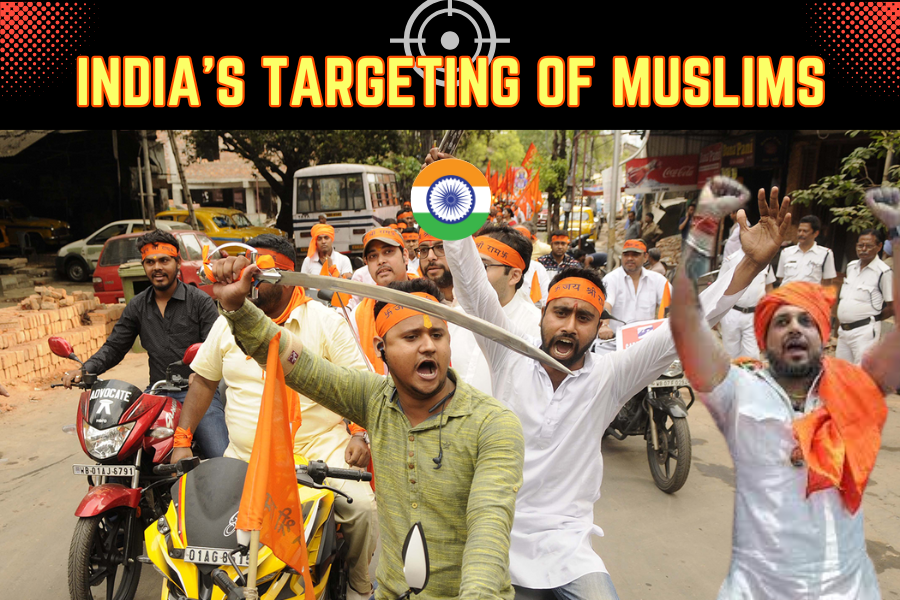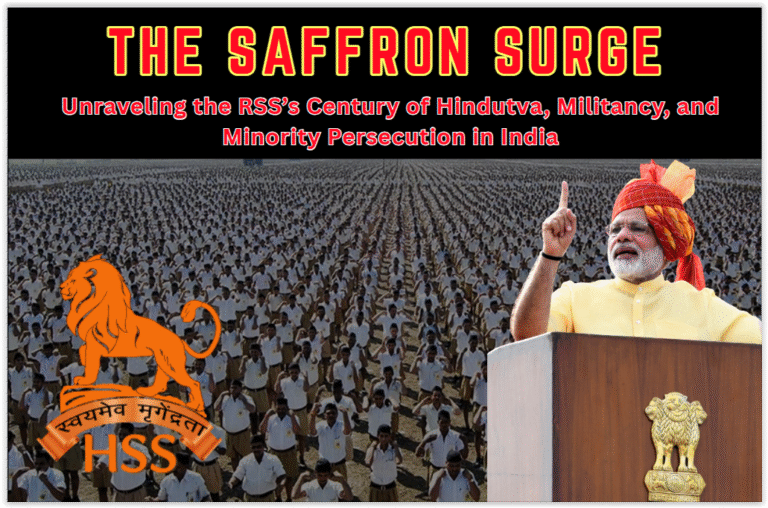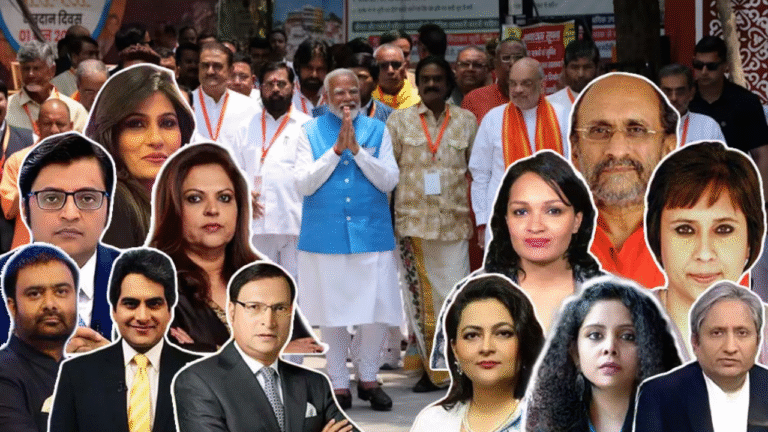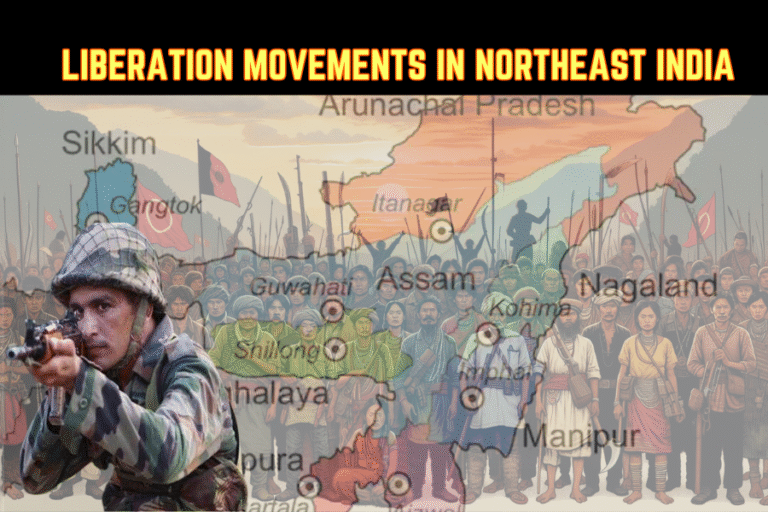(By Khalid Masood)
In India, a nation once celebrated as the world’s largest democracy, a dark tide of intolerance has surged under the Bharatiya Janata Party (BJP) and its ideological parent, the Rashtriya Swayamsevak Sangh (RSS). Muslims, numbering 200 million, face systematic targeting through discriminatory laws, arbitrary deportations, and vigilante violence, rendering them strangers in their own land. In Assam, over 300 Muslims were expelled to the India-Bangladesh no-man’s-land in 2025, while in Uttar Pradesh, “bulldozer justice” demolishes Muslim homes without due process. Despite voices like Asaduddin Owaisi denouncing Pakistan, India’s Muslims are branded as disloyal, treated as persona non grata. This article, from a Pakistani perspective, examines this escalating crisis, its historical roots, legal mechanisms, human toll, and the urgent need for reform to salvage India’s pluralistic soul.
Historical Context
The roots of anti-Muslim policies trace back to Assam’s complex history. The 1985 Assam Accord aimed to identify and deport illegal immigrants, primarily from Bangladesh, but its implementation has disproportionately targeted Muslims. The 2013 Supreme Court decree to update the National Register of Citizens (NRC) culminated in 2018, excluding 1.9 million people, mostly Muslims, labeled as “D-Voters” and stripped of rights. This exclusion, rooted in xenophobic fears of Bengali Muslim influx, set the stage for today’s crisis, where legal and extralegal measures converge to marginalize a community integral to India’s fabric.
Legal Mechanisms of Discrimination
India’s legal framework under the BJP has become a tool of exclusion. The Citizenship Amendment Act (CAA) of 2019 fast-tracks citizenship for non-Muslim refugees from Pakistan, Bangladesh, and Afghanistan, explicitly excluding Muslims, a move condemned by the UN as discriminatory. Foreigners Tribunals in Assam, often biased, declare Muslims “foreigners” with minimal evidence, leading to detentions. The Unlawful Activities (Prevention) Act (UAPA) enables arrests without bail, targeting Muslim activists and critics, with 7,000 detained since 2019. The Waqf (Amendment) Act of 2025, passed in February, places Muslim religious endowments under state control, eroding community autonomy. These laws, cloaked in legality, institutionalize Islamophobia, undermining India’s constitutional guarantees.
Assam’s Deportations: A Humanitarian Tragedy
Since May 2025, Assam authorities have deported over 300 individuals, predominantly Muslims, to the India-Bangladesh no-man’s-land. Night arrests, blindfolds, and abandonment without documentation mark these operations, with a schoolteacher among the victims. Families, left in anguish, have filed petitions in the Gauhati High Court and Supreme Court, seeking clarity on loved ones’ fates. These pushbacks, lacking due process, violate international norms, as noted by Human Rights Watch, and fuel fears of statelessness among Assam’s 4 million Muslims.
Uttar Pradesh: Bulldozer Justice and Vigilante Violence
In Uttar Pradesh, Chief Minister Yogi Adityanath’s regime has unleashed “bulldozer justice,” demolishing over 1,000 Muslim homes and businesses since 2022, often as collective punishment for protests. Security forces, accused of extrajudicial killings, have targeted Muslims with excessive force, with 50 deaths reported in 2024 clashes. Yogi’s Hindu Yuva Vahini and Bajrang Dal vigilantes, emboldened by his inflammatory rhetoric, have attacked Muslim neighborhoods, with 200 lynchings since 2017. This climate of fear, where Muslims are branded as outsiders despite leaders like Owaisi rejecting Pakistan, underscores their persona non grata status.
Living in Fear: The Human Toll
Assam’s Muslims face existential dread, with 300,000 excluded from the NRC vanishing into limbo, fearing deportation or detention. Assam’s “mega-camps,” housing 2,000 detainees, are overcrowded, with reports of 10 deaths due to poor conditions in 2024. Suicides have spiked, with 50 cases linked to statelessness fears. In Uttar Pradesh, 5 million Muslims live under constant threat, with 20% reporting harassment, per a 2024 survey. This trauma, compounded by Islamophobic narratives, fractures communities, leaving Muslims as second-class citizens.
Public and Activist Response
Human rights groups, including Amnesty International and local NGOs like Citizens for Justice and Peace, condemn India’s policies as unlawful. Lawyers in Assam have filed 500+ petitions, challenging arbitrary deportations. Protests, led by Muslim groups and secular activists, face UAPA crackdowns, with 1,000 arrests in 2024. International voices, from the UN to the U.S. Commission on International Religious Freedom, urge reform, citing 4,000 detentions since 2019. Despite Owaisi’s vocal anti-Pakistan stance, his community remains targeted, highlighting India’s failure to embrace its Muslims.
National Implications: A Spreading Crisis
The Assam model threatens to spread, with BJP leaders proposing NRC rollouts in West Bengal and Delhi, home to 30 million Muslims. Civil society faces suppression, with 200 NGOs banned under Modi since 2014. Vigilante groups like Bajrang Dal, linked to 500 communal incidents in 2024, operate with impunity, fueled by RSS ideology. Uttar Pradesh’s 200 lynchings and 1,000 demolitions mirror Assam’s exclusionary tactics, signaling a national crisis of religious identity politics that undermines India’s secular ethos.
Geopolitical Stakes: A Tarnished Image
India’s anti-Muslim policies have drawn global condemnation, with the UN warning of statelessness risks for 2 million people. The EU, a $100 billion trade partner, and the U.S., with $130 billion in trade, express concern, per 2025 statements, threatening India’s democratic image. The OIC’s 54-member bloc has condemned India’s “Islamophobic policies,” straining ties with Muslim nations. This fallout, coupled with India’s 2025 diplomatic setbacks post-Pahalgam, weakens its global standing, risking isolation in a multipolar world.
Path Forward: A Call for Justice
To avert a humanitarian catastrophe, India must act decisively:
- Immediate Actions: Suspend deportations, ensure due process, and restore citizenship for NRC-excluded individuals. Close detention camps and improve oversight, per UN standards.
- Legal Reforms: Repeal or amend the CAA to remove religious bias, limit UAPA misuse, and reverse Waqf Act encroachments, ensuring judicial fairness.
- Structural Redress: Promote pluralism through inclusive education, protect minorities, and strengthen media and civil liberties, countering RSS-driven hate.
Conclusion: A Nation at a Crossroads
India’s systematic targeting of Muslims, from Assam’s deportations to Uttar Pradesh’s bulldozers, is a betrayal of its constitutional promise of equality. The BJP and RSS, cloaking discrimination in nationalism, have cast 200 million Muslims as foreigners, despite their loyalty. This crisis, rooted in xenophobia and fueled by vigilante violence, risks plunging India into a humanitarian abyss. People of Sub-Continent mourn the erosion of a Indian’s pluralism, urging India to reclaim its soul through justice, dialogue, and inclusion, lest it forfeit its place as a beacon of democracy.







